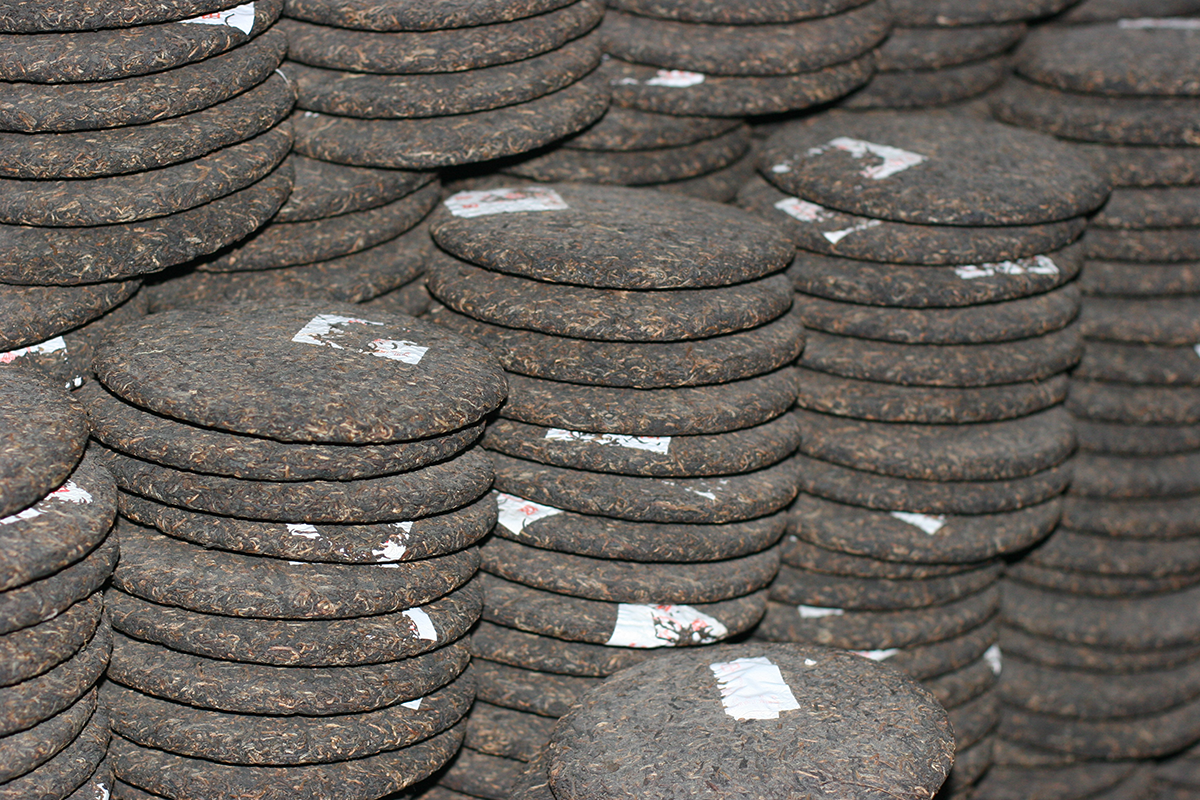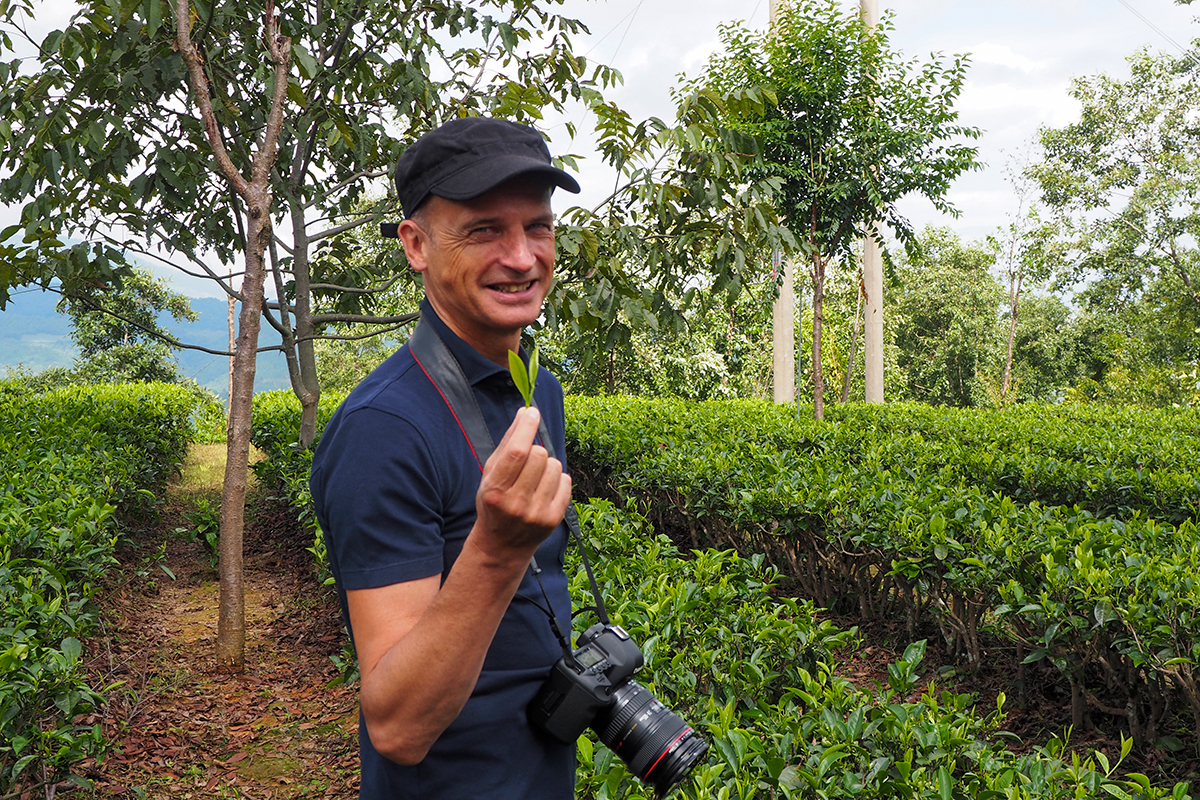With all the demonstrations and riots going on in France right now, these might seem like dark times. Tea has a dark side too. Pu-er cakes are made from fermented tea, or dark tea, as the Chinese called it over a thousand years ago. After the leaves are steamed, they are compressed into a brick, a cake, or a more rustic bird’s nest. These compressed teas improve with time. To drink them, you break the side of the block and the leaves crumble off. They can now be brewed, preferably in a gaiwan, several times in a row, until they have given us all they have to give.
ARCHIVE FOR March 2023
Yanki, a lesser-known producer
Darjeeling tea is not only grown on the large estates created by the British at the height of the Empire. Today, as well as the 83 officially registered plantations, there are a number of local initiatives, small and lesser-known factories that sometimes produce really good teas. Yanki is one of them, and near the village of Mirik, Allan and his family are doing great things with tea leaves. While most Darjeeling planters come from all over India, Allan’s family are indigenous to these mountains and speak the same language as the locals: Nepali. They buy the fresh leaves from the surrounding villagers and use them to make their wonderful teas.
Yanki, une production confidentielle
Darjeeling ne se limite pas à ces grands domaines créés par les Anglais à une époque où le soleil ne se couchait jamais sur les territoires de Sa Majesté. De nos jours, au-delà des 83 plantations officielles et dûment enregistrées, il existe diverses initiatives locales, de petites manufactures plus confidentielles qui produisent parfois de très jolis thés. Yanki, par exemple, fait partie de celles-ci, et du côté du village de Mirik, Allan et sa famille travaillent la feuille de thé avec succès. Tandis que la plupart des planteurs de Darjeeling arrivent de diverses régions de l’Inde, eux sont originaires de ces montagnes et parlent la même langue que leurs habitants, le népali. Allan et les siens achètent les feuilles fraîches des villageois alentour et à partir de ces feuilles ils mettent au point des crus fameux.
Six months without rain
In early spring, the first young shoots appear on the tea bushes. Here in Darjeeling, they arrive after a long winter when the camellia plant goes into dormancy. This lasts for about four months, from mid-November to early March, depending on the weather conditions.
This year, the Himalayan foothills, where the British decided to grow tea less than two centuries ago, have experienced a drought. Six months with little or no rain due to climate change, linked by some to global warming, by others to deforestation. The consequences are reflected in the figures and by mid-March, production was expected to be half of last year’s. However, there are no concerns when it comes to quality. Slow growth results in higher quality and more intense aromas and flavours.
Don’t waste your journey
In India, Henri Michaux wrote, if you don’t pray, you have wasted the journey. This is particularly true in the city of Benares, which Indians now call Varanasi. Here, religion is on every street corner and draws huge crowds to the banks of the holy river in the evenings. You have to stay up late until all that remains are the ghosts of the city and the fervour that is still palpable in the incense smoke and the candles glowing with love for the departed. When it comes to ablutions, whatever the time of day, everyone has their own style.
Making sure that drinking our tea is always a pleasure
I am here in India for the start of the spring harvest. It takes a certain number of days from when we first taste a delicate new-season tea, then buy it and have it flown to France, to when you can buy it in your favourite shop, and this process can’t go any faster. Once the tea arrives in our warehouses, unless it is already certified organic by an accredited organisation, we then send a sample of the tea to an independent laboratory to test it for residues of over two hundred pesticides. For certified organic teas we carry out spot checks. Palais des Thés is the only company in France to apply such strict criteria, assuring its community of tea lovers that its batches meet the highest health and safety standards to ensure their wellbeing when enjoying its teas.
Photo : Alexandre Denni.


